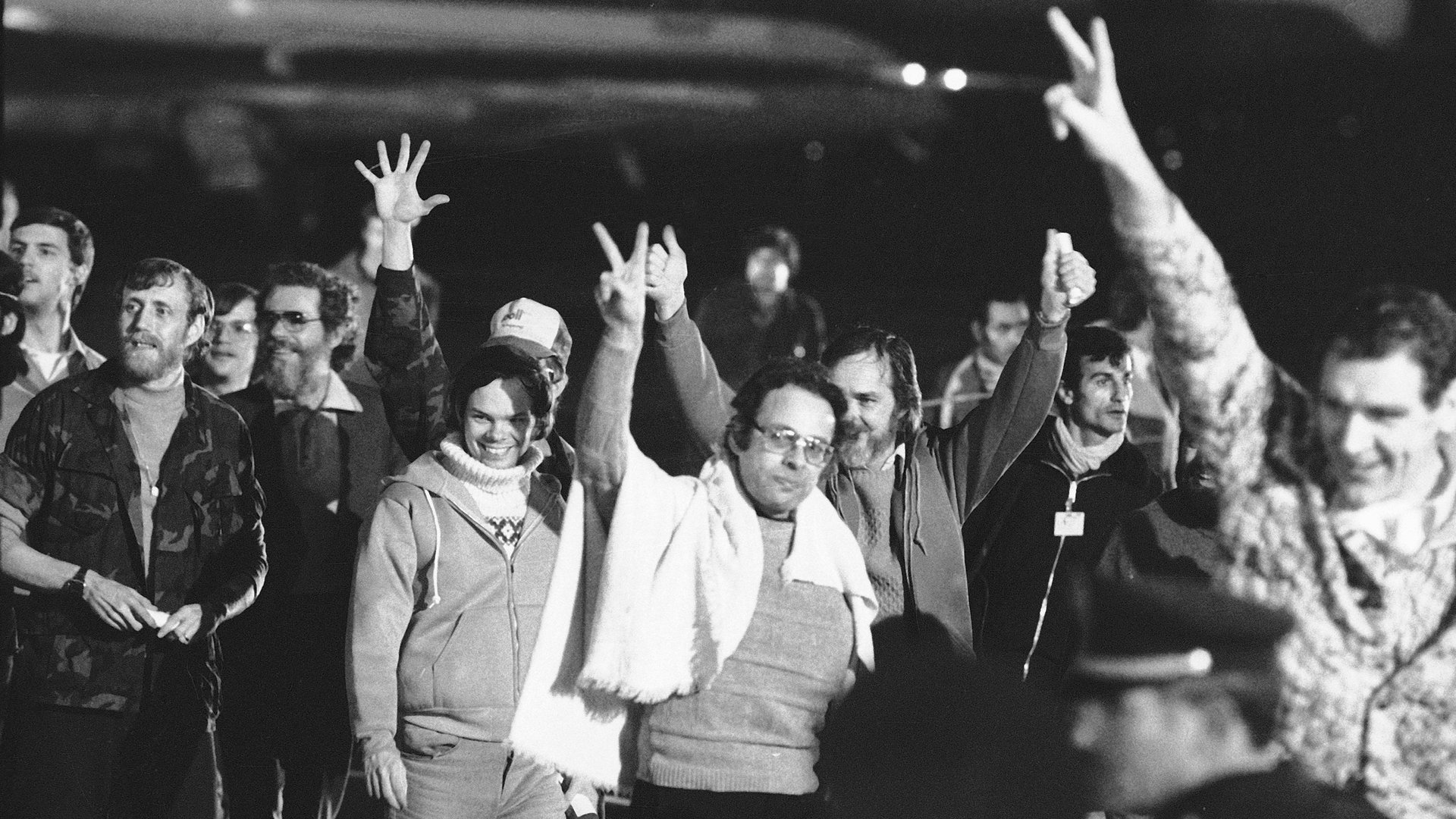35 years after release, survivors of the US-Iran hostage crisis could receive $4.4 million each
Nearly 35 years after their release, Americans taken hostage at the US embassy in Tehran in 1979 are finally being offered compensation.


Nearly 35 years after their release, Americans taken hostage at the US embassy in Tehran in 1979 are finally being offered compensation.
According to Agence France Presse, the 52 hostages who were held for 444 days (and one who was released early for health reasons) could receive up to $4.4 million each, or $10,000 for each of the days they were held. Thirty-seven are still alive today. Spouses and children of deceased former hostages are eligible for payments of up to $600,000.
The provision, part of a sweeping year-end spending bill passed Dec. 18 by the US Congress, is a welcome turn for the former hostages after a 2012 US Supreme Court ruling rejected their appeal in a long-running battle for compensation from the US government. The Carter-era agreement that freed the hostages in 1981, known as the Algiers Accords, promised the Iranian government immunity from suits associated with the hostage-taking. These new funds will be distributed by the US government from a $8.9 billion fine placed on bank BNP Paribas, for violation of sanctions against Iran, Sudan and Cuba. About $1 billion of that fine, according to The New York Times, will aid victims of terrorism.
“Throughout the entire negotiation, I demanded that the hostages, who were barred from getting a settlement through the courts, be included in any compensation package for victims of terrorism,” senator Harry Reid said in a statement. ”While a number of them have already passed away, I am pleased with the legislation, which finally provides closure for these Americans who suffered at the hands of the Iranian regime, along with other victims of terrorism.”
The Iran hostage crisis began on November 4, 1979, when Iranian student demonstrators demanding the US extradite Iran’s deposed Shah Mohammed Reza Pahlavi stormed the US embassy in Tehran and took 90 hostages. (Women and African-American hostages were released two weeks later.) The action led to US economic sanctions against Iran, and a botched rescue attempt in 1980 that killed eight US soldiers before the two nations agreed on hostage release terms. (Ben Affleck dramatized the story of six US diplomats’ escape from Iran during the crisis in his 2012 film Argo.)
Rodney Sickmann, a Marine sergeant who was among those taken in 1979, told The New York Times he was overcome by the news: ”I had to pull over to the side of the road, and I basically cried,” he said.